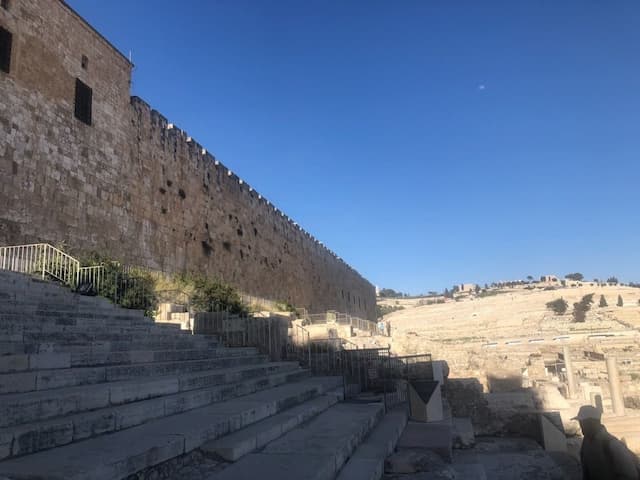Leviticus Study on Turning Mountains into Molehills
As we continue on this journey through the Bible, may we remember to ask God to show us what He wants us to learn? Psalm 19:14; “May these words of my mouth and this meditation of my heart be pleasing in your sight, Lord, my Rock and my Redeemer.” Now, let’s begin our study of Leviticus.
Leviticus
Author: Moses
Audience: The people of Israel
Date Written: 1450-1410 B.C.
Length: 27 Chapters
Important Word: Holiness
Major Verse: (19:2) “You must be holy because I, the Lord your God, am holy.”
Key People: Moses, Aaron, Nadab, Abihu, Eleazar, Ithamar

Summary of Leviticus
The book of Leviticus read like a manual for how to worship God within the Old Covenant rituals. Most of these ceremonial laws are abolished by the arrival of Jesus in the New Testament. Many Christians find it difficult to relate to this chapter because we never experienced these rituals. Nevertheless, we can learn about holiness (mentioned 152 times), sin, guilt, and atonement from this book. Leviticus is the first book to address these items, so many other Old and New Testament authors build on these concepts. The book also foreshadows the coming of Christ. Hebrews is long considered a companion book to Leviticus.
Five Sections
Leviticus contains five sections that lead the Israelites to temporary atonement from their sin and guilt. Those sections are as follows:
- The Five Main Offerings (chs.1-7):
- The Installation and Ministry of Aaron and His Sons (chs.8-10)
- The Distinction Between Clean and Unclean (chs.11-15)
- The Annual Day of Atonement (ch.16)
- Holy Livings (chs.17-26)
Leviticus – How can a sinful man approach a Holy God? This book declares God's followers can gain access to Him through the shedding of blood, foreshadowing Christ shedding His blood for us. Click To Tweet
Approaching God
How can a sinful man approach a Holy God? This book declares God’s followers can gain access to Him through the shedding of blood, foreshadowing Christ shedding His blood for us. The book also teaches that the redeemed must be holy because their Redeemer is holy. We find more of God’s characteristics defined within this book. They are as follows:
- God is accessible (although not easily) — 16:12-15; “12 He is to take a censer full of burning coals from the altar before the Lord and two handfuls of finely ground fragrant incense and take them behind the curtain. 13 He is to put the incense on the fire before the Lord, and the smoke of the incense will conceal the atonement cover above the tablets of the covenant law, so that he will not die. 14 He is to take some of the bull’s blood and with his finger sprinkle it on the front of the atonement cover; then he shall sprinkle some of it with his finger seven times before the atonement cover. 15 He shall then slaughter the goat for the sin offering for the people and take its blood behind the curtain and do with it as he did with the bull’s blood: He shall sprinkle it on the atonement cover and in front of it.”
- God is glorious — 9:23; “Moses and Aaron then went into the tent of meeting. When they came out, they blessed the people; and the glory of the Lord appeared to all the people.”
- God is holy — 11:44; “I am the Lord your God; consecrate yourselves and be holy, because I am holy. Do not make yourselves unclean by any creature that moves along the ground.”
- God is wrathful — 10:2; “So fire came out from the presence of the Lord and consumed them, and they died before the Lord.”
Leviticus – Jesus became the final sacrifice for all humankind. We no longer needed the rituals to access God. Click To Tweet
God as the Final Sacrifice
God’s explicit instructions about offerings within Leviticus point towards the final sacrifice of Christ for us on the cross. Because the ritual sacrifices of the Israelites represented only temporary removal of sins, they needed to be repeated continually. While on earth, Jesus lived a perfect life. He became the final sacrifice for all humankind. We no longer needed the rituals to access God.
God Speaking In Leviticus
In the book of Leviticus, God spoke to Moses in direct communication. We see this in Leviticus 1:1; “The Lord called to Moses and spoke to him from the tent of meeting. He said.” No other book in the Bible contains so many direct messages from God. “The Lord spoke,” is used 56 times. And, “I am Jehovah (your God),” is used 42 times.
Bible Study
Each book of the Bible contains lessons for us to learn as well as historical information. We need to study God’s Word to see what to do and what not to do in life. Paul reminds all of us of the importance of the words within the text in 2 Timothy 3.
2 Timothy 3:14-17; “14 But as for you, continue in what you have learned and have become convinced of, because you know those from whom you learned it, 15 and how from infancy you have known the Holy Scriptures, which are able to make you wise for salvation through faith in Christ Jesus. 16 All Scripture is God-breathed and is useful for teaching, rebuking, correcting and training in righteousness, 17 so that the servant of God may be thoroughly equipped for every good work.”

Prayer
Heavenly Father, guide our thoughts as we study your Word. Please show us how to apply the principles to our daily lives. Thank you for the many blessings we find within its pages. In Jesus’ Holy Name. Amen.
In need of prayer? I would love to pray for you. Submit your prayer request on my website at https://yvonne-morgan.com/submit-your-prayer-request-here/
Grace and Peace to you,
Yvonne M. Morgan is a Christian #author, #blogger, and #speaker. #BibleGatewayPartner
Matthew 28:19 “Therefore, GO and make disciples of all the nations, baptizing them in the name of the Father and the Son and the Holy Spirit.”
Additional Resources:



